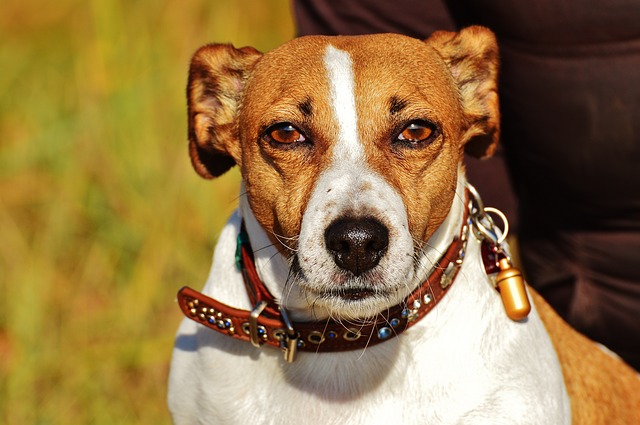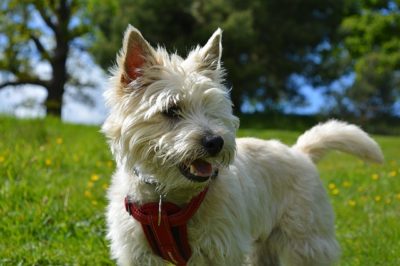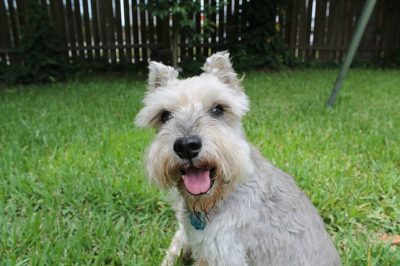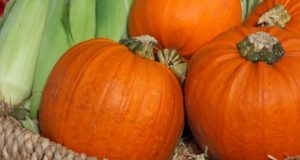Many breeds of dogs were originally bred to be “ratters” — that is, their ancestors were bred to hunt and kill vermin.
In fact, many of these dogs are terriers. Terrier is from the Latin word “terra,” which means “for earth.” Most terriers “go to ground” after burrowing animals, and these dogs have been used on farmsteads for centuries. Hunting rats is their specialty, but some were bred to hunt foxes and badgers as well as moles and other animals.
When you think of the terrier breeds, words like tenacious, tough and determined come to mind. Now you know why. These guys needed to be feisty and rugged to go into a burrow after vermin, drag them out and kill them.
Discover 1,147 Secrets Of Successful Off-Grid Living!
These breeds include border terriers, cairn terriers, dachshunds, Jack Russell terriers, miniature schnauzers, rat terriers, west highland white terriers and others. These are short-legged, well-muscled little dogs built for the job at hand. Most have a short, rough coat to shed dirt if left natural, and a short thick tail which was used as a “handle” to pull the dogs out of burrows. Most do not quit easily, so owners would grasp their tail to encourage them to abandoned their quarry.
Let’s take a look at the best seven “vermin-control” dogs:
1. Border terriers – Border terriers originated in the hills between England and Scotland. Like many of the terriers, they have a waterproof coat. They also have a wiry outer coat with a soft undercoat, perfect for working outside in the damp wet weather of their homeland. They average 11 to 16 inches tall and coincidentally are usually 11 to 16 pounds. They can be good family dogs if well socialized.
2. Cairn terriers – Cairn terriers get their name from the Scottish Gaelic word “cairn,” which which means a human-made stack of stones – due to their ability to push through these stone fences while going after vermin. They originated in the Isles of Skye around the year 1500. Also a small, stout dog, they range in height from 9 to 13 inches and weigh 13 to 18 pounds.
3. Dachshunds – Dachshunds are a German breed of dog. Their name, translated, means “badger dog.” They were used as a scent hound to locate and chase badgers, flushing them out of burrows. There are now three coat types – wire, smooth and long haired. They are typically 8 to 11 inches tall and 11 to 20 pounds. Most believe the original dogs used to hunt badgers were larger than is typical of modern dachshunds.
4. Jack Russell terriers – Jack Russell terriers were originally bred for fox hunting. They are an English breed named for the Revered John Russell, who enjoyed promoting these little dogs for that task. They are agile and athletic, going anywhere their prey will lead them. They are about 10 to 15 inches tall and 15 to 18 pounds.
5. Miniature schnauzer – Miniature schnauzers are of German descent. They are said to be a cross of the poodle and standard schnauzers that were bred for as a Jack-of-all-trades-type farm dog, helping with herding as well as vermin. The miniature schnauzers are intelligent versatile dogs with the terrier attitude. They typically range from 10 to 15 inches tall and 10-18 pounds.
6. Rat terriers – Rat terriers are an American breed that was bred for a farm and hunting companion. Traditionally they excelled at squirrel and rabbit hunting due to their speed. They were common during the 20s and 30s on many small farms. They can be 10 to 18 inches and 10 to 25 pounds.
New Solar Oven Is So Fast It’s Been Dubbed ‘Mother Nature’s Microwave’
7. West highland white terriers – Westies, as they are commonly called, originated in Scotland in the mid-1500s. They are a cousin to the cairn terriers and used mainly as ratters. Westies have a wiry outer coat and soft dense undercoat to keep them warm and dry. They range from 9 to 11 inches tall and 15 to 20 pounds.
These are just a few of the most popular breeds that have been used on farmsteads for centuries to help control the rodent population. Many people today have farm cats for that purpose, but the problem lies in the fact that most cats are not as reliable as dogs. Cats seem to hunt when the mood strikes, whereas most dogs find great joy in the adventure.
The terrier group as a whole is independent, smart and rugged. Their personalities reflect their hunting heritage; many people would call them stubborn.
To enjoy a terrier, you need to provide them with plenty work and socialize them with small pets and children. They can be great dogs, alerting you to anything out of the ordinary. Needless to say, they enjoy digging and exploring, even it is in your garden of prized vegetables or flowers. If you are considering a farm companion that barks at anything amiss and can dispatch ground animals in the blink of an eye, then try terriers.
What advice would you add on terriers and dogs who chase after ground varmints? Share your tips in the section below:
 Off The Grid News Better Ideas For Off The Grid Living
Off The Grid News Better Ideas For Off The Grid Living







